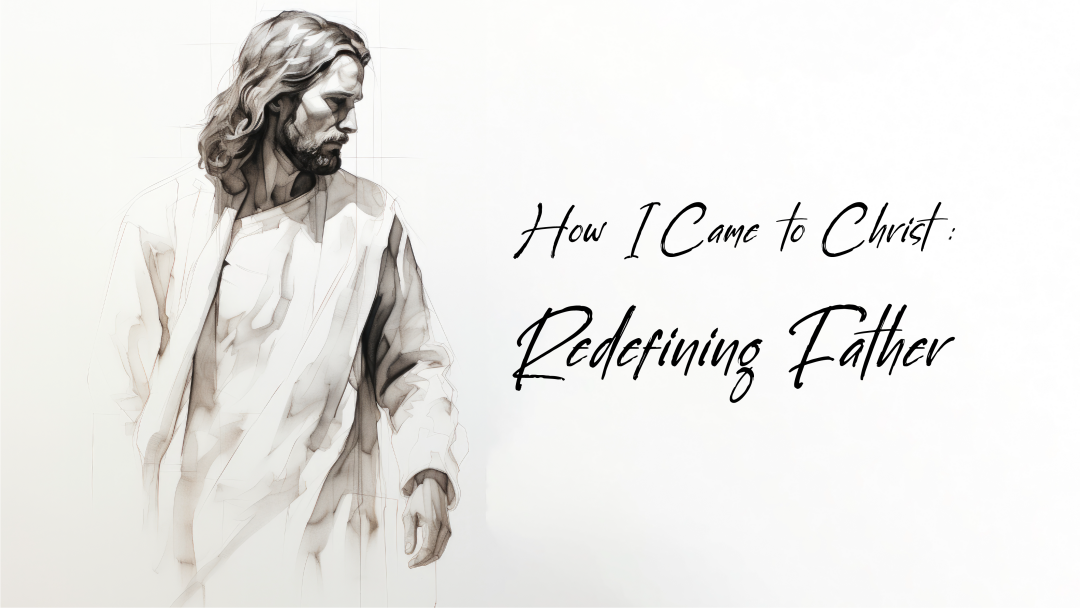
Not everyone’s journey to faith is the same. Faith in God comes easily to some, but not everyone sitting next to you in church on Sunday, not everyone at your office, not everyone in your family or your circle of friends has the same story. Because we all have different life experiences, not everyone has the same reaction to the term “Heavenly Father.”
When the disciples asked Jesus to teach them to pray, He began with the model prayer, Our Father which art in heaven (Luke 11:1 KJV). The term Father is a very special one in the Hebrew language and tradition. The actual word is Abba, a term of endearment and affection, similar to the term "daddy" or "papa."
For some, that reference to father elicits warm, secure memories of a loving dad holding them in strong, protective arms, sharing laughter and security, feelings of safety through a storm, and awe in all of the broken things he could fix. Those people can often step easily with faith and confidence into a relationship with a loving Heavenly Father, but for others (maybe you or someone you know), the very term “father” seems an awful thing to call a God of love. For some, it incites memories of abandonment, rejection, or maybe even abuse. For them, that first step on the journey to faith (the step of trust) may be more difficult.
My birth father exited my life when I was a preschooler. My memories of him are few; some are joyful, others are not. He was a tall, handsome, fun-loving Cuban. He drove a bright yellow Cadillac convertible, and I remember his beautiful big smile, but many memories of him include feelings of loneliness, fear, confusion, and abandonment. I vividly remember that after he left home, I waited on the porch for hours for him to pick me up and take me to the park or out for an ice cream cone. I would get all dressed up on the days he had promised to come and sit on the porch waiting for him, but he did not always come. His visits became shorter and less frequent. As time passed, I sat on that porch, passing the time by stringing necklaces made from the beautiful purple Jacaranda blossoms that had dropped from the big tree in the front yard, afraid that if I went inside for lunch, I might miss him, feeling more and more alone and rejected until I finally understood that he was not coming anymore. For my baby brother and me, the term “father” did not refer to words like dependable, provider, protector, promise keeper, or encourager. However, my story was not finished waiting on that porch.

Months passed, and my mother was introduced to a young pastor. He, too, was alone and wounded. He and my mother were getting to know each other, and it was time for him to meet the kids. In those months of confusion and uncertainty, I had become kind of a brat. My mom felt terrible about having to work long hours to support us, and my grandmother felt sorry for us having no father. I had learned to tap and use those feelings to get my way. At first, this new man in our lives seemed like a big brick wall. He saw right through me and actually expected me and my little brother to behave, but because he had also experienced hurt and abandonment, he could understand my reluctance to trust.
This man, who I would come to love as my “Daddy,” did not give up on me, even when I pushed him away. I remember the day he proposed to us. He asked my mother to marry him and asked if we would be his kids. He had won us over with his patience, forgiveness, and his generous love for us. Soon, he and our mother were married, and when they returned from a short honeymoon, I asked him if I could call him “Daddy” now. He cried and wrapped me in big, strong arms, and I felt safe for the first time. I did not understand it then, but he was demonstrating the love of our Heavenly Father. Even so, I was still broken and rebellious, and when he asked me to do some simple chore, I responded with the classic reaction of a spoiled stepchild. In fact, I reacted like a lot of people in rebellion against God. “You are not my real Daddy, and I don’t have to do what you tell me,” I yelled defiantly. But, instead of becoming angry and punishing me, he scooped me up into his arms, and realizing my fear of rejection, he hugged me tight and whispered in my ear, “Don’t ever say that to me again. I am your real Daddy because I love you, and I will never leave you.” I was loved, and he kept his promise of loving me and my little brother as his own.
He filed for legal adoption, and I remember the judge saying that these were his favorite days in court, helping a new family to be born. Daddy showed us what it felt like to have someone we could count on. He showed us that we were worth loving. We became his, and because of him, my understanding of the word “father” changed. He taught us about God; more than that, he demonstrated God’s love consistently. I began to believe that if Daddy could love me, then maybe God could love me as well, and the term “Heavenly Father” became a believable reality in my life.
In the following years, I listened intently to his sermons and watched him live what he taught. One Sunday, when I was seven, he preached a sermon that changed my life. It was based on John 3:16: For God so loved the world, that he gave his only Son, that whoever believes in him should not perish but have eternal life. I don’t remember everything he said, but I do remember this part… “Your relationship with God has to be personal. It has to be your own. Just because Aunt Sally or your mother and father believe, that doesn’t mean that you are a Christian.”
I thought about those words as I sat under the China Berry tree in our backyard a few days later and knew I wanted to make it personal. I wanted to be a Christian. I ran inside and told Daddy what I was thinking, and he prayed with me to receive Christ as my Savior.
Our journey to faith in God may be different, but His love for us is equally and freely available, paid for in full by Jesus's sacrifice on the cross, and that has made all the difference!
For you did not receive the spirit of slavery to fall back into fear, but you have received the Spirit of adoption as sons, by whom we cry, “Abba, Father.”
Romans 8:15
